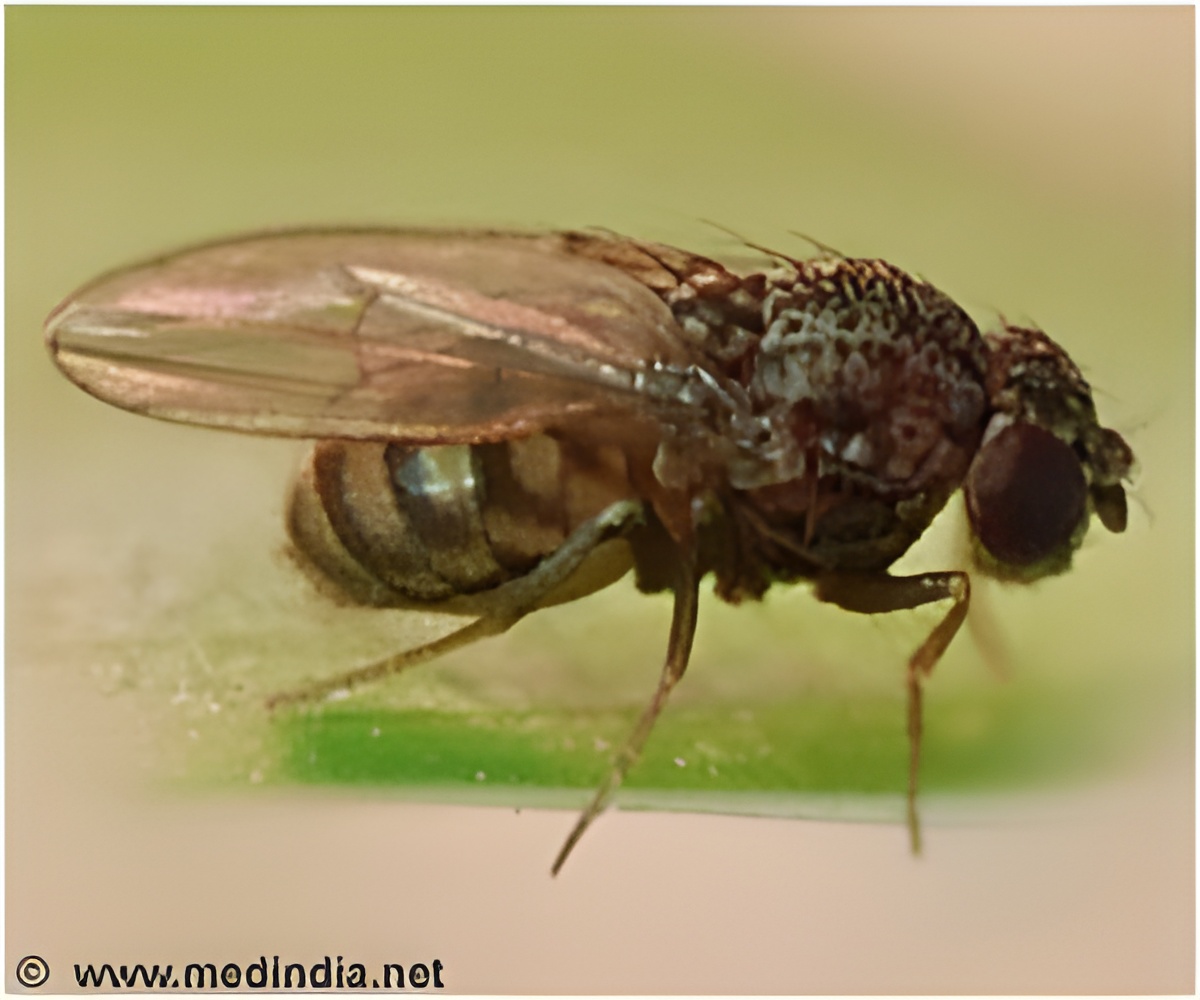
Until now, researchers largely have relied on rats, mice and other animals as model systems for exploring the metabolic and genetic changes that take place in diabetics.
The fruit fly Drosophila melanogaster has been widely deployed in labs to investigate a wide range of human diseases, from Alzheimer's to cancer.
But the scientific literature hasn't documented use of the adult fruit fly for studying the metabolic disruptions that are the hallmark of Type 2 diabetes. The fruit fly's advantages include its low cost and a very short lifespan, both of which enable scientists to undertake rapid screenings in their search for new genetic and drug treatments.
The insulin-resistant fruit fly was developed in the lab of SMU biologist Johannes H. Bauer, principal investigator for the study.
It was accomplished by feeding fruit flies a diet high in nutrients, said Bauer, an assistant professor in SMU's Department of Biological Sciences. That process mimics one of the ways insulin resistance develops in humans - overeating to the point of obesity.
Advertisement
"We learned that by manipulating the nutrients of fruit flies, we can make them insulin resistant. With this insulin-resistant model we can now go in with pinpoint precision and study the molecular mechanisms of insulin resistance, as well as drug treatments for the condition, as well as how to treat obesity, how to block insulin resistance and how metabolic changes from a specific diet develop. The possibilities are endless," Bauer said.
Advertisement
Source-ANI















